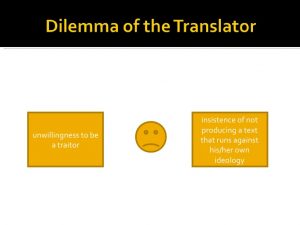Wisdom-Trek / Creating a Legacy
Welcome to Day 1036 of our Wisdom-Trek, and thank you for joining me.
I am Guthrie Chamberlain, Your Guide to Wisdom
Treason & Translation – Wisdom Wednesday

Wisdom – the final frontier to true knowledge. Welcome to Wisdom-Trek where our mission is to create a legacy of wisdom, to seek out discernment and insights, and to boldly grow where few have chosen to grow before.
Hello, my friend, I am Guthrie Chamberlain, your captain on our journey to increase wisdom and create a living legacy. Thank you for joining us today as we explore wisdom on our 2nd millennium of podcasts. This is Day 1036 of our trek, and it is Wisdom Wednesday.
Creating a Biblical worldview is important to have a proper perspective on today’s current events. To establish a Biblical worldview, you must also have a proper understanding of God’s word. Especially in our western cultures, we do not fully understand the Scriptures from the mindset and culture of the authors. In order to help us all have a better understanding of some of the more obscure passages in God’s Word, we are investing Wisdom Wednesday reviewing a series of essays from one of today’s most prominent Hebrew scholars Dr. Micheal S. Heiser. He has compiled these essays into a book titled I Dare You Not to Bore Me with the Bible.
Are some Biblical translations treasonous to the Christian faith? In today’s essay, we will explore a passage that shows why certain translations differ.
Treason & Translation

A famous Italian proverb declares “traduttore, traditore,” which means, ”translator, traitor.” Those who assume this is true are unaware of how difficult it is to produce a translation. Every translator at some point invariably discards the meaning of the original text.
A committee of scholars assembled to produce a translation typically adopts an overarching philosophy of translation. In simplest terms, there are two. The first is called “formal equivalence,” which seeks to account for virtually every word in the original text by producing its English counterpart in translation. This is “word-for-word” or “literal” translation. The second is called “dynamic equivalence.” This approach seeks to capture the thought of the original verse in context, and then re-create that thought using whatever English words are most precise. This is “thought-for-thought” translation. But adopting an approach does not mean that all the translators will apply it equally. There is also a matter of interpretation. When the biblical text allows more than one translation due to ambiguity in the context, grammar, or word usage, a translator needs to make his or her own decision, which can lead to controversy.
1 Corinthians 7:1 is illustrative of the potential hazard.
| ESV |
It is good for a man not to have sexual relations with a woman. |
| NASB |
It is good for a man not to touch a woman. |
| NIV |
It is good for a man not to marry. |
| NLT |
It is good to abstain from sexual relations. |
The most “word-for-word” of these translations is that of the NASB, which captures the literal reading of the Greek words in the verse, particularly the verb “touch.” Other translations move away from the ambiguous “touch” to “have sexual relations with’’ (ESV, and NLT).

The most controversial rendering is the NIV “It is good for a man not to marry.” How is it that the translators could go from a Greek word that means “touch” to these options?
The answer is that the translators factored in what was presumed to be the wider context of the chapter and, ultimately, the writer. In 1 Corinthians 7:7-8, Paul describes himself as single. His advice to the Corinthians in several places is that it would be wiser for those who are not married to remain unmarried (1 Corinthians 7:7-8 & 26-27) because of an undefined “present crises” ([7:26]), which may be indicating Paul’s view that they were in the final days before Christ’s return. This context is presumed in 7:1 by the NIV.

This translation is certainly plausible, but still problematic. While Paul notes a “present crises” in verse [7:27], can we be certain that Paul was thinking of that distress in 7:1? Might Paul have been thinking about sexual morality instead? The verses that immediately follow 7:1 speaks frankly of sexual temptation (7:2-4). If morality was on Paul’s mind, then the ESV and NLT are more on target. The point would then be an admonition to avoid sexual contact outside of marriage, not to avoid marriage itself.
Translation isn’t just a matter of matching words of one language to words of another. Rather than consider Bible translators as traitors or off base, we need to be sympathetic to their burden. Reading multiple translations can help your understanding of God’s Word and reveal the complexities of the process.
That will conclude our essay for this week. Next Wisdom Wednesday we will continue in the New Testament as we look at Dr. Heiser’s next essay titled “Charleston Heston Had Company.” I believe you will find this another interesting topic to consider as we build our Biblical worldview.
Tomorrow we will continue with our 3-minute humor nugget that will provide you with a bit of cheer and help you lighten up and live a rich and satisfying life. So encourage your friends and family to join us, and then come along with us tomorrow for another day of our Wisdom-Trek, Creating a Legacy.

If you would like to listen to any of our past 1035 treks or read the Wisdom Journal, they are available at Wisdom-Trek.com. I encourage you to subscribe to Wisdom-Trek on your favorite podcast player so that each day’s trek will be downloaded automatically.
Thank you so much for allowing me to be your guide, mentor, and most of all your friend as I serve you through the Wisdom-Trek podcast and journal.
As we take this trek together, let us always:
- Live Abundantly (Fully)
- Love Unconditionally
- Listen Intentionally
- Learn Continuously
- Lend to others Generously
- Lead with Integrity
- Leave a Living Legacy Each Day
I am Guthrie Chamberlain reminding you to Keep Moving Forward, Enjoy Your Journey, and Create a Great Day Everyday! See you tomorrow!